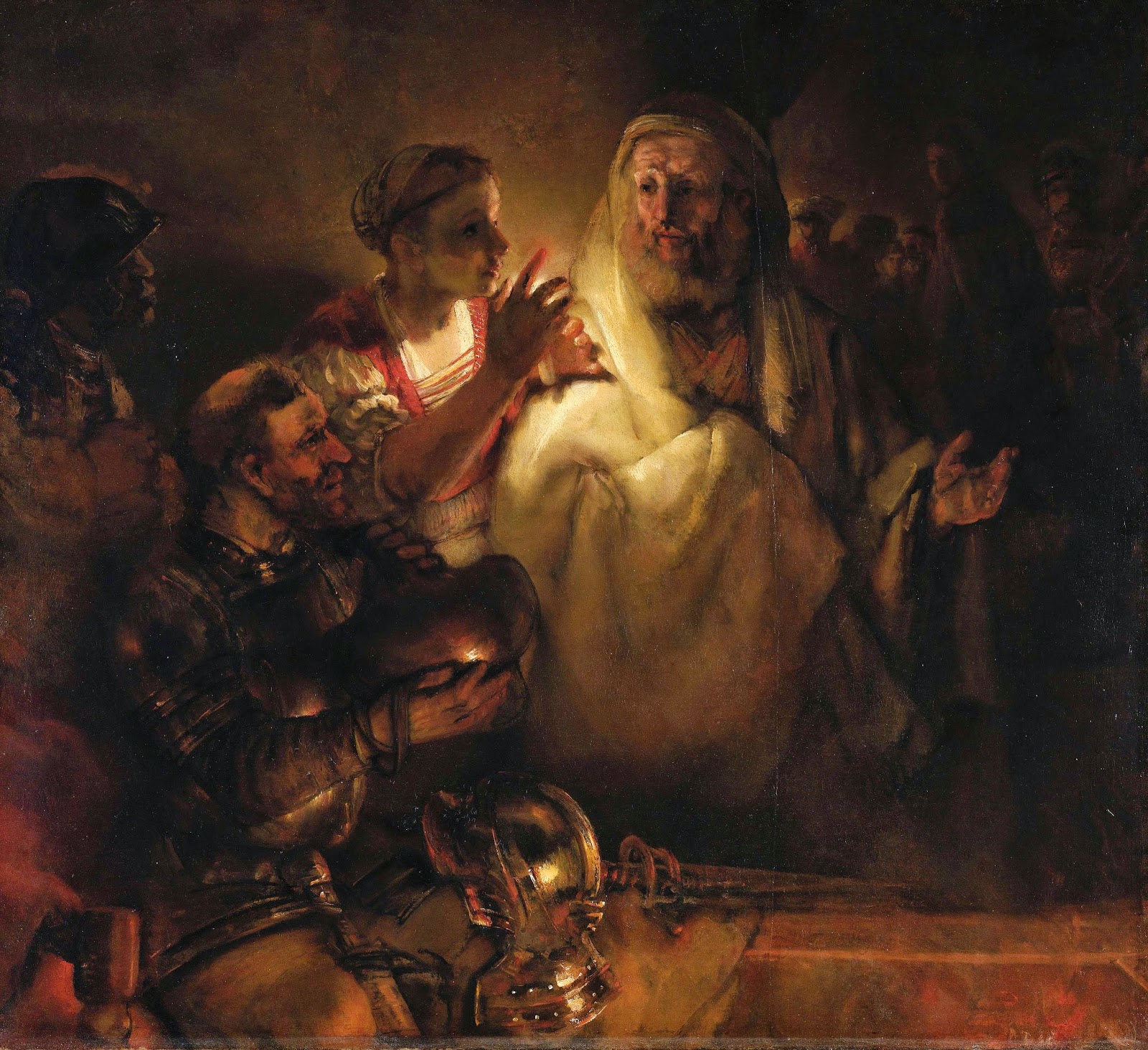In today’s Gospel Jesus ends with these words to his
religious leaders, "Amen, I say to you, tax collectors and prostitutes are
entering the kingdom of God before you.” As a member of the clergy, this
particular gospel story always has a way of making me feel very uncomfortable.
When I image this story in my mind, I see myself not standing with the
disciples listening in on this theological conversation/confrontation that
Jesus is having with the Jewish chief priests and religious elders. Rather, I
find myself being among the ones whom Jesus is confronting.
Jesus sets up a dichotomy between the most despised and
hated people of his time, the tax collectors and the prostitutes, and the most
respected segment of his society, the chief priests and the elders. He tells them
essentially that the tax collectors and the prostitutes will be entering the
Reign of God long before the self-righteous entourage that sits before him.
Needless to say, that didn’t go over very well with the chief priests and the
elders and didn’t advance Jesus favorably in their opinion.
What was the criteria upon which Jesus made this
observation. It boils down to humility. Already cast out, ostracized and
despised by human society, tax collectors and prostitutes knew, first hand,
about humiliation. They swam in humiliation. There were no inflated egos to
deflate, nor praise heaped upon them by others because of their professions.
They had reached the bottom of human society and were kept prisoner there with
no means of escape. They had nothing left to lose for they had nothing.
The chief priests and the religious elders, on the other
hand, were on the top of their society. Highly respected, use to sitting in
places of honor in their society, the chief priests and religious elders lacked
for nothing, but humility. Unlike the tax collectors and the prostitutes, they
had everything to lose.
It is very easy for us “in the profession”, that is,
entrenched within a religious tradition, or for those of us who hold ourselves
the masters of all that his holy, to emulate the example of the chief priests
and religious elders in the gospel. How quick we all are to sit in judgment on
those around us. We have all experienced at some time people around us who are
fired, excommunicated, shunned, isolated, disowned, and in extreme cases put to
death for disagreeing or being in opposition to religious authority regardless
of the religious tradition.
For those of us who pride ourselves in our
self-righteousness, Jesus reminds us that we are accountable to God for the
choices that we make. Is it God’s will that is uppermost in our choices, or our
will? To assist us in making this assessment we are given as a guide the
beautiful canticle from St. Paul’s letter to the Philippians. “Have in you the same attitude that is also
in Christ Jesus, Who, though he was in the form of God, did not regard equality
with God something to be grasped. Rather, he emptied himself, taking the form
of a slave, coming in human likeness; and found human in appearance, he humbled
himself, becoming obedient to the point of death, even death on a cross.”
The power and honor attributed to Jesus is not derived from some power that was
self-generated. Jesus comes to possess power and honor through humbling himself
in service to God the Father and to the humanity he helped to create.
Humility is the key that opens the door to the Reign of God.
By emptying ourselves, in essence, becoming smaller, we have easier access to
the fullness of God’s reign. If we are inflated by our pride, by our authority,
by our own self-righteousness, we will become too big to enter into God’s Reign
and will self-condemned ourselves to isolation from the God we purport to
serve.
St. Paul
states this so beautifully in his first letter to the Corinthians. “Although I am free in regard to all, I have
made myself a slave to all so as to win over as many as possible. To the Jews I
became like a Jew to win over Jews; to those under the law I became like one
under the law—though I myself am not under the law—to win over those under the
law. To those outside the law I became like one outside
the law—though I am not outside God’s law but within the law of Christ—to win
over those outside the law. To the weak I became weak, to
win over the weak. I have become all things to all, to save at least some.
All this I do for the sake of the gospel, so that I too may have a share
in it. Do you not know that the runners in the stadium all
run in the race, but only one wins the prize? Run so as to win. Every athlete exercises discipline in every way. They
do it to win a perishable crown, but we an imperishable one. Thus I do not run aimlessly; I do not fight as if I
were shadowboxing. No, I drive my body and train it, for
fear that, after having preached to others, I myself should be disqualified.”
Jesus came to us in humility, to teach us the value and
meaning of humility. Whether we find ourselves among the high and the mighty,
or the lowly and despised, we must clothe ourselves in the humility of Jesus.
By losing ourselves in the love of God, allowing God to penetrate the walls of
pride and control, we will come to know the will of God who is all, and is in
all.



No comments:
Post a Comment